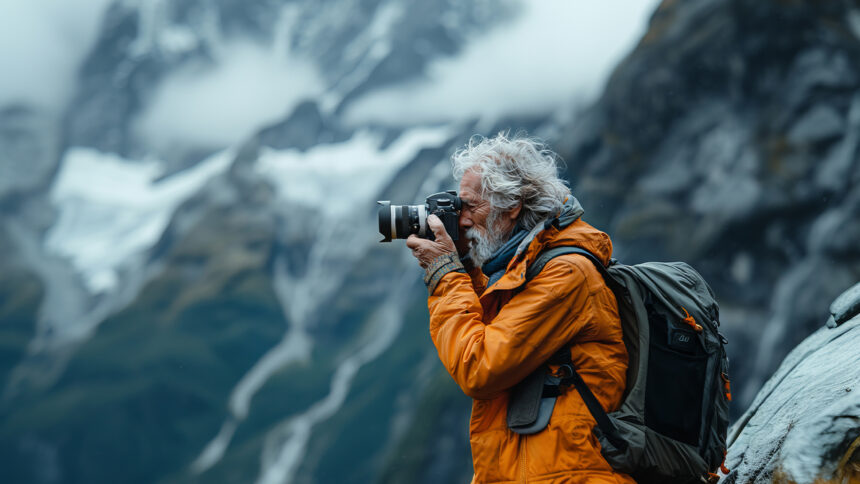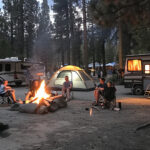15 Most Famous Adventurers and Explorers Around the World
The World’s Most Famous Natural Explorers
Natural explorers have left their mark on human history and contributed significantly to expanding our knowledge of the world. They braved dangers to venture into unknown lands, made new discoveries and inspired humanity. The stories of these great explorers, both throughout history and today, are filled with their courage and perseverance.
Here are the biographies of 10 famous explorers recognized worldwide:
1. Christopher Columbus (1451-1506)
What He’s Famous For: Discovery of the New World
Christopher Columbus was an Italian explorer best known for discovering the Americas. In 1492, sponsored by Queen Isabella and King Ferdinand of Spain, he sailed across the Atlantic Ocean, aiming to find an alternative route to India. However, Columbus’ destination was the American continent, which was unknown to the Western world at the time. Columbus, who set foot in the Bahamas and the Caribbean, thought he had reached India at that time.
Columbus’ discovery was a major event that led to the European colonization of the Americas. Although his achievements are admired, today he is seen as a controversial figure due to his negative impact on indigenous peoples and his contribution to the slavery system.
Wikipedia Source: Christopher Columbus
Image Source: Columbus Portrait
2. Marco Polo (1254-1324)
What He’s Famous For: The Discovery of Asia and the Silk Road Travels
Marco Polo, the Venetian merchant and explorer, is best known for his epic journeys from Europe to Asia. Together with his father and uncle, Polo embarked on the Silk Road journey to China in 1271. During this journey, he gained great respect at the court of Kublai Khan and stayed in the service of the Khan for many years. Polo’s experiences during his years in Asia had a profound impact on the Western world’s relations with the East.
Marco Polo, in his book “The Travels of Marco Polo”, gave extensive information about China, India and other Asian countries and aroused great curiosity about these regions, which were mysterious to Europeans at that time. His travels provided important information about geography and trade in Europe.
Wikipedia Source: Marco Polo
Image Source: Portrait of Marco Polo
3. David Livingstone (1813-1873)
What He’s Famous For: His Exploration of the African Interior and Anti-Slavery Work
David Livingstone was a Scottish missionary and explorer. He is famous for his 19th century expeditions into the interior of Africa, which had not yet been explored by Europeans. His greatest achievement was the discovery of the Victoria Falls and his explorations along the Zambezi River.
One of Livingstone’s greatest ideals was to end the slave trade in Africa. Many of his travels were undertaken to expose the inhumane effects of the slave trade. His meeting with journalist Henry Morton Stanley, famous for the phrase “Dr. Livingstone, I presume?” is one of the most famous events in the history of exploration.
Wikipedia Source: David Livingstone
Image Source: Livingstone Portrait
4. Ernest Shackleton (1874-1922)
What He’s Famous For: Antarctic Expeditions and the Endurance Expedition
Ernest Shackleton was a British explorer famous for his discoveries in Antarctica. Shackleton is especially known for the Endurance Expedition. Shackleton, who set out to reach Antarctica in 1914, faced a great struggle for survival with his team when his ship got stuck in the ice and sank. Shackleton and his team survived with great determination and carried out an epic rescue operation.
Shackleton is known for his courage, leadership skills and perseverance. His story of Antarctic expeditions and survival is considered one of the greatest stories of heroism in the history of exploration.
Wikipedia Source: Ernest Shackleton
Image Source: Shackleton Portrait
5. Jacques Cousteau (1910-1997)
What He’s Famous For: Sea Exploration and Underwater Documentaries
Jacques Cousteau is a French marine biologist, diver and one of the most famous explorers of the underwater world. Cousteau led a life dedicated to the study of underwater life and contributed greatly to the development of diving technologies. Cousteau introduced the underwater world to millions of people through his underwater documentaries.
Cousteau’s greatest achievement was the development of a diving apparatus called the aqualung. This invention laid the foundations of modern scuba diving. Cousteau is also recognized as a great environmental advocate with his work for the protection of underwater life.
Wikipedia Source: Jacques Cousteau
Image Source: Cousteau Portrait
6. Sir Edmund Hillary (1919-2008)
What He’s Famous For: First Everest Climb
Sir Edmund Hillary is best known as the mountaineer who made the first successful ascent of Mount Everest in 1953. Together with Sherpa Tenzing Norgay, Hillary reached the world’s highest peak and gained international fame. Hillary’s achievements were not limited to mountaineering; he also played an active role in environmental protection projects throughout his life.
Hillary has become a legend in the mountaineering world for her achievements and modesty. After climbing Everest, Hillary also participated in many charity activities and worked to improve the living conditions of the Sherpa people in the Himalayas.
Wikipedia Source: Sir Edmund Hillary
Image Source: Hillary Portrait
7. Roald Amundsen (1872-1928)
What He’s Famous For: The first man to set foot on the South Pole
Norwegian explorer Roald Amundsen made history as the first man to set foot on the South Pole in 1911. Amundsen emerged as a leader in polar exploration and was also the first person to cross the Northwest Passage. His daring expedition to Antarctica made him a legendary figure among explorers.
Amundsen is known for planning his expeditions with great discipline and care. His expeditions greatly increased geographical and scientific knowledge of the polar regions.
Wikipedia Source: Roald Amundsen
Image Source: Amundsen Portrait
8. Alexander von Humboldt (1769-1859)
What He Was Famous For: Geographical and Biological Discoveries in Central and South America
German naturalist and explorer Alexander von Humboldt is considered the founder of modern biogeography. His discoveries in Central and South America revolutionized the sciences of geography, biology and ecology. His ascent of Mount Chimborazoand his research on tropical forests helped us understand how the world’s different ecosystems are interconnected.
Humboldt’s discoveries developed an understanding not only from a scientific point of view, but also as a basis for nature conservation work. This scientist, who showed the interconnectedness of nature, is recognized as the pioneer of ecological thinking.
Wikipedia Source: Alexander von Humboldt
Image Source: Humboldt Portrait
9. Charles Darwin (1809-1882)
What He’s Famous For: The Theory of Evolution and the Galapagos Discoveries
Charles Darwin is considered the founder of the theory of evolution. During his voyage around the world on the Beagle, his discoveries, especially in the Galapagos Islands, helped him understand how living things evolve. Darwin’s observations and investigations were collected in his work “The Origin of Species” and revolutionized the world of science.
Darwin’s work has laid the cornerstones of biology and contributed greatly to our understanding of the evolutionary history of living things. The theory of evolution is recognized as one of the fundamental principles of modern biology.
Wikipedia Source: Charles Darwin
Image Source: Darwin Portrait
10. Henry Morton Stanley (1841-1904)
What He’s Famous For: African Exploration and the Discovery of Dr. Livingstone
Henry Morton Stanley was a British-American explorer, particularly famous for finding Dr. David Livingstone. Stanley was known for his expeditions into the unknown interior of Africa. After finding Livingstone in 1871, he also led expeditions to the Congo River and the Nile River. Stanley is credited in the history of exploration with the phrase “Dr. Livingstone, I presume?”.
Stanley’s discoveries played a major role in understanding the geography of Africa and contributed to the growing European interest in the continent.
Wikipedia Source: Henry Morton Stanley
Image Source: Stanley Portrait
Today’s Most Famous Living Explorers
11. Jane Goodall (1934-)
What He’s Famous For: Chimpanzee Research and Conservation
Jane Goodall is a British primatologist and ethologist best known for her research on chimpanzees. Goodall began studying chimpanzees in Tanzania’s Gombe National Park in the 1960s and gained revolutionary insights into their social and family life.
Goodall is widely respected in the scientific community as one of the first scientists to prove that non-human creatures have emotional intelligence. She founded The Jane Goodall Institute and continues to advocate for conservation and animal rights.
Wikipedia Source: Jane Goodall
Image Source: Goodall Portrait
12. Sylvia Earle (1935-)
What He’s Famous For: Ocean Exploration and Marine Conservation
Sylvia Earle is an American marine biologist, ocean explorer and environmental activist. Known by her nickname “Your Deepness”, Earle has contributed greatly to ocean science with her undersea explorations and underwater research. Earle founded the environmental organization Mission Blue and fights for the protection of marine ecosystems.
Earle is widely respected worldwide for his work in the conservation of marine ecosystems. He was a pioneer in underwater research in the 1960s and 1970s, and has stimulated interest in the underwater world with numerous documentaries and books.
Wikipedia Source: Sylvia Earle
Image Source: Earle Portrait
13. David Attenborough (1926-)
What He’s Famous For: Nature Documentaries and Environmental Activism
David Attenborough is a British nature documentarian and environmental activist. With his famous documentary series such as “Planet Earth”, “Blue Planet” and “Our Planet”, he raised awareness of millions of people about nature and the environment. Attenborough has been a great environmental advocate for the protection of nature throughout his life and has won numerous awards around the world.
Attenborough has been one of the most influential figures in this field, raising awareness for the protection of nature and wildlife through the documentaries he narrated and presented. His work has contributed greatly to the protection of endangered species.
Wikipedia Source: David Attenborough
Image Source: Attenborough Portrait
14. Ranulph Fiennes (1944-)
What He’s Famous For: The World’s Most Challenging Discoveries
Ranulph Fiennes is a British explorer and adventurer, famous for his expeditions to some of the world’s most challenging regions. Fiennes was the first person to reach the North and South Poles and the first person to circumnavigate the globe through the poles. He also became the oldest British explorer to climb Mount Everest in 2009.
Ranulph Fiennes is known for his extreme weather survival skills and has been described by Guinness World Records as “the world’s greatest living explorer”. Fiennes’ discoveries have been widely admired for pushing the limits of human endurance.
Wikipedia Source: Ranulph Fiennes
Image Source: Fiennes Portrait
15. Benedict Allen (1960-)
What He’s Famous For: Dangerous and Isolated Expeditions
Benedict Allen is a British explorer and author known for his expeditions to dangerous and isolated places. Through his television documentaries and books, Allen has redefined the modern explorer. On his journeys, he uses only survival techniques learned from the locals and avoids technology as much as possible. In particular, his expeditions to the Amazon Jungle, Papua New Guinea and Mongolia have attracted great attention.
Benedict Allen has faced death many times during his adventurous life, but has always survived thanks to his ability to adapt to nature. Allen’s courage and strong connection to nature make him one of the most fascinating explorers of our time.
Wikipedia Source: Benedict Allen
Image Source: Allen Portrait
Overview
In this blog post, we explore the lives and achievements of 15 world-renowned natural explorers. These explorers from the past to the present have made great contributions to humanity with their courage, love of nature and boundary-pushing discoveries. Their stories continue to inspire us to understand, explore and protect nature.
To follow in the footsteps of these explorers and discover nature, you too can embark on an adventure on the Camperlogy platform and make your own discoveries in the world of nature and camping!
Excerpt:
Images in this content are sourced from Wikipedia and Commons Wikimedia.












